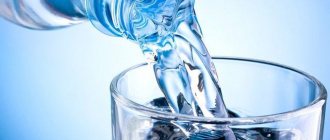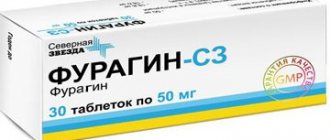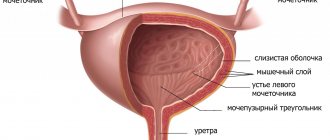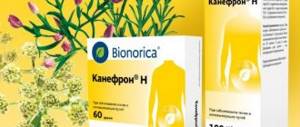To obtain the desired result and quickly relieve symptoms, the attending physician must know all the advantages and disadvantages of medications for kidney inflammation. In this article we will tell you which drugs for kidney treatment are used in modern medicine. Kidney infections and pathologies are treated in a combined way, with the prescription of drugs from different groups. The selection of the drug is selected based on the effect to be achieved:
- anesthetize;
- block nerve impulses;
- antiseptic effect;
- antibacterial effect;
- diuretic effect;
- dissolution of stones.
Antispasmodics for the kidneys
All kidney diseases are accompanied by pain, which causes discomfort to the patient. To relieve spasms of the muscles and blood vessels of the kidneys, drugs with an antispasmodic effect are used. At home, it is recommended to use products based on drotaverine. These include “No-shpa”, “Papaverine” and “Platifillin”. The listed medications have a gentle effect on the muscles of the organ and relieve spasm. However, they are not effective for colic or severe painful spasms. In this case, combined agents such as “Spazmalgon”, “Baralgin” and “Spazmonet” are useful. Before taking medication, you should consult your doctor.
Combination drugs
You can combine the effect of several medications in one. They act on the kidneys gently and without side effects.
Most combination drugs are made on a plant basis, so they can cause allergic reactions.
- Canephron N (Germany)
. The therapeutic effect is provided by a medicinal complex of plant origin. The composition includes rosemary, lovage, centaury, thanks to which Canephron N is diuretic, analgesic, antibacterial and anti-inflammatory. Can be purchased in the form of tablets or drops.
Under the supervision of a doctor, herbal tablets are even taken to prevent diseases of the urinary system.
Analgesics for kidney diseases
Kidney tablets with an analgesic effect are divided into 2 groups: antipyretics and NSAIDs (non-steroidal anti-inflammatory drugs). Medicines of both groups are sold in pharmacies without a doctor's prescription. Antipyretics include the simplest painkillers, the main active ingredients of which are analgin or paracetamol. These include Analgin, Tempalgin, Nurofen and Panadol. In addition to pain relief, they also affect body temperature, gradually normalizing it. The second group of drugs consists of drugs with the property of reducing the inflammatory process. These include Citramon, Aspirin and Diclofenac. If the patient suffers from unbearable pain and the listed medications do not help, the doctor can use narcotic analgesics: Morphine, Promedol.
Nephroleptin
Nephroleptin is one of the most common herbal supplements for kidney support. It contains only natural ingredients that have an excellent effect on the excretion process and eliminate many kidney pathologies. These include:
- knotweed herbs;
- propolis extract;
- lingonberry leaves;
- bearberry leaves;
- bearberry.
Such plants have long been used in folk medicine to relieve kidney disorders. Modern technology has made it possible to improve medications and make them easier to take for people suffering from kidney disease.
Doctors have proven the effectiveness of this drug in the treatment of kidney and urinary tract diseases. Nephroleptin can be used as an adjuvant in the treatment of pyelonephritis and cystitis. Regular use of Nephroleptin has a beneficial effect on the kidneys: their functions are completely normalized.
You need to be treated with Nephroleptin according to your doctor's indications. There are also contraindications for use in the presence of allergic reactions to the components of the medicine. The recommended course of treatment is from 2 to 4 weeks. It is not advisable to take this medication during pregnancy and breastfeeding.
Antiseptics and antibacterial drugs
If the cause of kidney disease is an infection, the doctor prescribes antiseptics to the patient. Their action covers the fight against harmful microorganisms, bacteria and fungi. For a quick recovery, antiseptics should be combined with drugs from other groups. Widely used antiseptic drugs include potassium salt, Pyranoside, Rifampicin and Levorin.
Antibacterial agents for kidney diseases have a semi-synthetic composition. Each drug has its own characteristics of action on the body and restrictions on use. Therefore, self-medication is unacceptable. Only the attending physician can prescribe correct and effective therapy. The average course duration is 12−14 days. Disappearance of symptoms is possible after 5-6 days of use. However, premature completion of the course is fraught with the disease becoming chronic. The most commonly prescribed drugs are Amoxicillin, Nalidix and Cefaclor.
Top 10 most effective tablets for kidney diseases with combined action
The most popular and effective drugs prescribed for kidney diseases:
- Aksef;
- Verapamil;
- Canephron;
- Movalis;
- Nephrophyte;
- Ofloxin;
- Urosept;
- Urolesan;
- Flemoulav solutab;
- Ceftriaxone.
Tablets should be purchased and used only as prescribed by a doctor.
Medicines made from plant materials help with kidney problems. Significant improvements in the health of kidney problems can be achieved with the help of medications prescribed by a professional.
Article design: Oleg Lozinsky
Diuretic medicines for kidney treatment
One of the consequences of kidney disease is disruption of their functioning. As a result, excess fluid and harmful salts accumulate in tissues and organs. To normalize function, diuretics are used. Doctors distinguish several groups of diuretics:
- Thiazide drugs are characterized by rapid action. The result occurs 1-2 hours after administration and lasts up to 14 hours. Their advantage is the almost zero yield of useful substances along with urine. The popularity of this group for kidney diseases is explained by its ease of use, but they have a number of contraindications. Thiazide drugs include Hypothiazide and Hydrochlorothiazide.
- Loops are used in hospital settings, when excess fluid needs to be quickly removed from the patient’s body. The result comes after 15-20 minutes. The use of loop diuretics at home can provoke an imbalance of substances. Drug names: Ethacrynic acid, Furosemide and Bufenox.
- Potassium-sparing people drink at the initial stage of illness. Their results come as the active substance accumulates in the body. The first effect is visible 1-2 days after the start of administration. The advantage is the preservation of potassium and magnesium levels in the body. The names of the group's products are: Aldactone, Veroshpiron and Spironolactone.
- Osmotic drugs are prescribed in case of exacerbation of diseases. After normalization of the condition, their use is canceled. The most popular remedy is Mannitol.
Normalize kidney function
During disorders, excess fluids and toxins accumulate in the kidneys. To remove them, diuretics are prescribed during treatment:
- Furosemide (Russia)
. Analog – Lasix (France). The effect is achieved within half an hour. The daily dose is 40 mg once.
Inexpensive medications help restore the urinary process.
Drugs that dissolve stones
Kidney medications for urolithiasis perform the functions of crushing and removing stones and sand from the organs. For this purpose, you can take medications of synthetic origin or herbal remedies. Doctors often combine these groups to achieve quick results. The list of drugs is quite large, so for the correct selection you should consult a doctor. The best synthetic drugs: Panangin, Blemaren and Allopurinol. A good tendency for stones to pass is observed if the German drug Rovatinex is used. A good effect is obtained from such products as Urolesan, Renon Duo and Canephron.
Benefits of herbal preparations
Such products (unlike synthetic drugs) act more gently. At the same time, they are also quite effective. Herbal remedies have fewer side effects and contraindications and can be prescribed to children and pregnant women.
Herbal kidney tablets contain extracts of medicinal plants:
- bearberry;
- licorice;
- calendula;
- horsetail;
- lovage root;
- centaury;
- birch leaves;
- knotweed herbs;
- fenugreek seeds;
- rosemary.
The medicines also contain many essential oils - sage, pine, mint, etc. Herbs help remove excess water from the body, help break down stones and restore kidney function. Herbal uroantiseptics relieve inflammation, prevent complications and relapses of the disease.
Herbal remedies for the kidneys
Herbal medicines for the treatment of kidneys are widely used in medicine. Their advantage is the absence of adverse reactions of the body. Herbal preparations are allowed for children and pregnant women. There is only one contraindication - individual intolerance to the ingredients of the composition. For a quick recovery, the medicine should be selected by a doctor based on test results and the course of the disease. Medicines that have a herbal composition:
- "Nephroleptin" is a dietary supplement. Helps improve kidney function. It has a complex of actions, but at the same time has some contraindications.
- "Nephrodelin" - drops from a set of medicinal herbs that supply the body with vitamins and microelements. Used to cleanse the kidneys, treat and prevent liver diseases.
- "Canephron N" - German tablets for the treatment of kidneys and urinary tract. Thanks to the composition, long-term use is allowed. It has 2 release forms: drops and tablets.
- "Cyston" is prescribed for almost all kidney diseases. Contains herbal components.
Is Chinese medicine effective?
Chinese medicine is based on the theory that every human organ is given energy at birth. Moreover, it should remain unchanged for as long as possible. To do this, you need to feed your organs with the energy of the outside world. As soon as the energy given at birth begins to be wasted, illnesses begin. The Chinese consider the kidneys to be one of the main organs. If all their energy is wasted, the person dies. To maintain the organ, you should perform a special set of exercises:
- Stand straight, legs in line with your shoulders, feet parallel to each other. Your back should be kept straight. While inhaling, smoothly raise your arms, palms down, to shoulder level. As you exhale, smoothly tilt your body to the right, while your arms should maintain their original position. Lower yourself until your right hand touches the floor. Direct your gaze to your raised left hand. Relax. Inhale and slowly return to the starting position. Do the same in the other direction.
- Stand straight, tense your legs and buttocks as much as possible. Inhale slowly and hold your breath. Count to 10. At the same time, place your hands on the kidneys (on the back below the ribs) and press on each kidney in turn. At the same time, try to bend your back as deeply as possible.
- The starting position is similar to the second exercise. The difference is that pressure is replaced with light spanking. It is recommended to wet your hands with cold water. This technique is needed to improve blood circulation.
Main directions of influence of drug therapy
In a comprehensive fight against pathology, you should not limit yourself to using only one drug, because according to statistics, the most effective method is therapy using up to 5 different types of drugs for the treatment of kidneys. This is understandable, since any disease is characterized by a special composition of symptoms that manifest themselves with varying strength, and possible complications must be warned in advance in order to avoid a dangerous inflammatory process that can lead to death in the patient. Effective medicines for the treatment of kidneys must have the following qualities:
- Prevention of complications;
- normalization of the patient’s general condition;
- getting rid of obvious symptoms accompanying the disease;
- precise targeting of the cause of the disease and its subsequent elimination.
The direction of the effect of drug therapy is determined by the specific diagnosis made by the attending physician. Only after the specialist has accurately identified the pathology should it be necessary to begin prescribing the appropriate treatment. In one case, it is important to promptly remove stones, in another, to get rid of pronounced symptoms, in the third, it is necessary to clean the ureteral channels for normal urine outflow. But the general rule when prescribing a drug for a kidney disease is to keep the use of a large number of tablets to a minimum while maximizing the positive effect.
To comply with this rule, tablets for the treatment of kidneys must have the following properties that promote rapid relief from pathology:
- contains a high concentration of active substance, which contributes to the creation in the urine and blood of an unfavorable environment for the development of unwanted microorganisms;
- antimicrobial effect on pathogens;
- the ability to prevent pathogen resistance to antibiotic exposure.
Suppositories for kidney diseases
Medicines for the genitourinary system in the form of suppositories are often used for men and women. The product "Palin" is widely used. It has an antibacterial effect. Visible results occur 1-2 hours after administration. The preventive effect of the drug extends to patients prone to relapses. For vaginal infectious diseases in women, “Palin” is prescribed in combination with other drugs. “Phytosuppositories No. 5” are used for kidney diseases in acute and chronic forms. The drug contains natural ingredients that, when combined, help cleanse the genitourinary system. They also help restore kidney function after illness. Recommended dosage: 1-2 suppositories per day. The duration of the course is 10 days. After this, you should take 10 days of rest and repeat taking the drug. The number of courses is determined by the doctor.
Folk remedies for kidney prevention
For prevention, you can use folk recipes along with medications to enhance the preventive effect.
Recommended recipes used by patients suffering from pathologies of the urinary system:
- A medium bunch of parsley is thoroughly washed, placed in a 1-liter jar and poured with boiling water. The product is kept until the liquid acquires a characteristic greenish tint. The parsley infusion is drunk for three days, after which the medicine is prepared again. The course of therapy is 21 days.
- Birch buds, bearberry leaves and yarrow are prepared in equal volumes. Pour two tablespoons of the mixture into two glasses of boiling water and leave until it cools completely. The resulting product is taken within 24 hours. The course of prophylaxis is 10 days.
- The most used folk remedy for kidney problems is cranberry berries, as well as lingonberries. The berry is ground with sugar until a pleasant-tasting medicine is achieved, after which it is used for two weeks, one teaspoon at a time.
When using folk remedies, do not neglect consulting a doctor.
25370 Alexey Babintsev 02/23/2018
Kidney diseases and drugs for their treatment
Hypertension
The main symptoms of the disease are high blood pressure, especially its lower level. The cause of this condition of the patient can be any disease in the organs of the genitourinary system. If treatment is not started in a timely manner, the disease can lead to serious complications. Hypertension therapy consists of constant monitoring of blood pressure and its timely normalization. In addition, it is necessary to treat the underlying disease, which resulted in high blood pressure. Good remedies to help control the disease are Captopril or Propanolol.
Colic in the kidney
Colic is not a separate disease. In most cases, it becomes a consequence of urolithiasis. The main symptom of colic is pain that comes on suddenly and leaves a person unable to move. Pregnant women experience increased uterine tone, and people with a low pain threshold experience nausea. Drug treatment includes taking antispasmodics. The main ones, also allowed during pregnancy, are “Baralgin”, “No-shpa” and “Papaverine”. The best option to reduce colic in the absence of medications is a heating pad filled with warm water. If your kidneys hurt, then a warm shower will have a good effect, it can calm and relax.
Drugs for kidney inflammation
Inflammation of the kidneys can have a different nature and occur as an independent disease or be a complication of another illness. Depending on the location and course, several types of inflammatory processes are distinguished. The first of them, pyelonephritis, occurs due to infection. The affected area is the pelvis of the organ. For kidney inflammation of this nature, the best solution is to fight the infection. In addition, they reduce inflammation and relieve symptoms. To prevent relapses, a diet is prescribed. Tablets for the treatment of kidneys with a diagnosis of pyelonephritis - Amoxicillin, Cefaclor and Gentamicin. To prevent relapse, use “Tsunami”. The diagnosis of glomerulonephritis is made when there is inflammation in the glomeruli of the kidneys. The disease belongs to the category of autoimmune. Tablets, powder or injection solutions can be used for treatment. Effective ones include Tavegil, Trental, Voltaren and Veroshpiron.
Kidney failure
Kidney failure is characterized by a decrease in the function of formation and excretion of urine. Lack of proper treatment leads to an imbalance of substances and damage to all organs and systems. Treatment of kidneys with this diagnosis includes the use of drugs from different groups. Effective therapy requires diuretics (Hypothiazide), plasma substitutes (Reogluman), intravenous nutrition (Aminosteril Ke Nefro), enterosorbents (Filtrum-Sti) and herbal remedies (birch leaves).
Polycystic kidney disease
The diagnosis of “polycystic disease” is made in the presence of a large number of benign tumors in the kidneys. Therapy is aimed at maintaining the patient’s health and delaying the development of kidney failure. For the blood vessels and the entire genitourinary system, it is necessary to take medications to normalize the level of substances in the body. For polycystic disease, such effective drugs as Canephron, Fitolysin and Cyston are prescribed.
Renal neoplasm
Kidney cancer is a malignant neoplasm located in one or both kidneys. The success of treatment depends on timely consultation with a doctor and proper therapy. The choice of treatment depends on the patient’s general health, stage of cancer, existing contraindications and type of tumor. An effective solution is surgery. This is a radical method that allows you to get rid of the tumor and promotes rapid recovery. In advanced cases, a course of chemotherapy with the drugs Sorafenib and Pazopanib is prescribed.
Hydronephrosis of the kidney
Characterized by the accumulation of urine in parts of the kidneys. If left untreated, the organ expands and dies. Surgery is the main way to get rid of the disease. This restores normal urine flow. Medications for hydronephrosis are used as a way to relieve symptoms and prepare the body for surgery. For this purpose, Kanamycin, Tetracycline, Pyrodoxin and others are used.
The most popular herbal preparations
The pharmaceutical industry offers many herbal-based drugs. Of these, several of the most common and effective remedies can be identified.
Nephroleptin
The drug Nephroleptin is prescribed for pyelonephritis and cystitis. The medicine helps relieve the inflammatory process and stabilize the functioning of organs.
Herbal kidney tablets include:
- knotweed;
- propolis;
- lingonberry leaves;
- bearberry;
- liquorice root;
- calendula inflorescences.
The drug has a number of contraindications. The product should absolutely not be used if you have an allergic reaction to one or more components of the composition.
Relative contraindications include pregnancy and breastfeeding. In this case, only an obstetrician can prescribe the tablets. Nephroleptin is sold in pharmacy chains for an average of 600 - 750 rubles. The drug has few side effects.
Nephroleptin is often one of the components of therapy in the treatment of diseases of the excretory system.
Canephron N
Herbal kidney tablets Canephron N act in several directions at once. They have a diuretic, antimicrobial and anti-inflammatory effect.
The composition of the drug includes:
- lovage root;
- centaury;
- rosemary leaves.
Canephron N is prescribed for inflammation and infectious diseases of the kidneys. Can also be used for preventive purposes. Prevents the formation of stones.
The drug has a number of contraindications. Tablets are not prescribed to children under 6 years of age, adults with chronic alcoholism (with the development of various pathologies of the liver, kidneys, etc.) and individual intolerance to the composition.
Canephron is indicated for inflammatory diseases of the urinary system.
As side effects, allergic reactions to the components of the drug may occur. In this case, Canephron N is discontinued. On average, the cost of the drug is 300-400 rubles.
Cyston
Herbal medicine for the kidneys Cyston is recommended for the treatment of infectious and inflammatory diseases. The drug is prescribed for pyelonephritis and urolithiasis. Cyston has a powerful anti-inflammatory and diuretic effect.
The drug contains many herbs:
- filmy scum;
- ash vernonia;
- multileaf onosma;
- reed saxifrage;
- rough strawflower;
- silicon lime;
- heartleaf madder;
- stem didymocarpus.
Cystone is prescribed for the treatment of inflammatory kidney diseases and urolithiasis.
Among the contraindications of Cyston are the size of stones more than 10 mm and the patient’s tendency to allergic reactions. The only side effects noted are individual intolerance to the drug. If you are allergic to one or more components, a rash, redness of the skin, and swelling may appear.
Cyston is one of the few drugs that are approved during pregnancy and breastfeeding. However, in any case, you can take the tablets only as directed by your doctor. On average, the cost of the drug is 350 - 500 rubles.
Phytolysin
Phytolysin is available in the form of a dark green paste for oral use.
The composition of the drug includes not only medicinal herbs for the kidneys, but also essential oils:
- parsley root;
- onion peel;
- horsetail;
- birch leaves;
- lovage root;
- wheatgrass root;
- goldenrod;
- knotweed;
- fenugreek seeds.
Among the positive qualities is the high effectiveness of the drug. With its help, stones are removed less painfully, and inflammation is well controlled. Also an undeniable plus is the affordable price of the product: the average cost of the drug is 200 - 350 rubles.
The drug Fitolysin is available in the form of a paste for the preparation of a suspension for oral administration.
However, among the disadvantages of the drug is a large list of contraindications.
These include:
- phosphate kidney stones;
- pancreatitis;
- gastritis;
- renal and heart failure;
- hepatitis;
- stomach ulcer;
- gallstones;
- acute form of nephritis.
Also, the drug should not be taken if you are hypersensitive. Phytolysin also has many possible side effects. A person may experience nausea, vomiting, rash, and itching. Sometimes there is increased sensitivity to ultraviolet rays.
Therefore, the product should be used only as prescribed by the treating specialist. Usually it is not prescribed separately, but is combined with other drugs.
Urolesan
Urolesan belongs to the group of herbal uroantiseptics. This is a combined drug that has a diuretic, choleretic and anti-inflammatory effect. Treatment of the kidneys with Urolesan helps restore the functioning of the genitourinary system, affects the properties and composition of urine, and removes excess uric acid.
The drug is produced in several forms:
| Capsules (tablets) Capsules Urolesan is a greenish hard gelatin capsule with a medicinal plant powder inside. | The pills are covered with a greenish gelatin coating. Inside there is a yellow powder with the smell of spruce. Each capsule contains pepper, castor and fir oils, hop and oregano extracts, plus wild carrot extract. |
| Drops
| Green liquid. The drops contain the same components as the tablets. Only in other quantitative proportions. Active substances are dissolved in ethyl alcohol. |
| Syrup Urolesan syrup is a thick yellowish-green liquid with a sweet taste and specific odor, often used in the treatment of children under 14 years of age. | Thick yellow or yellowish-green liquid with a specific odor and taste. The composition is identical to other forms of release of the drug. The syrup differs only in its auxiliary components, including sorbic and citric acid and sugar syrup. |
The drug begins to act within 20 - 30 minutes after administration. Copes well with renal and hepatic colic and has a high antimicrobial effect. The maximum effect of the drug begins 60 minutes after administration and lasts 5 - 6 hours.
What to take for diabetes?
Diabetes mellitus often causes complications in the liver and kidneys. This situation is complicated by the fact that many kidney medications are contraindicated if blood glucose levels are abnormal. All therapy is aimed at delaying dialysis procedures. The choice of medication for treatment depends on the stage of kidney damage. A group of drugs that gives good results are ACE inhibitors. They normalize blood pressure and help the kidneys cleanse the blood. Examples: Berlipril, Diroton, Captopril and Prestarium. Remedies are recommended for kidney disease in diabetes mellitus. Before starting use, you should consult your doctor.
Phytolysin
The drug is a tube with a dark green paste for oral administration.
The multicomponent product contains:
- birch leaf extracts,
- horsetail,
- knotweed herbs,
- parsley,
- fenugreek seeds,
- lovage,
- goldenrod.
It perfectly neutralizes the inflammatory process, removes excess water, and helps neutralize toxic substances. Prevents sand accumulation and stone formation.
Indications: acute and chronic forms of urinary tract diseases, urolithiasis.
- allergy,
- renal and heart failure,
- some kidney pathologies.
Modern herbal medicines for the treatment of kidneys have many advantages. Often included in complex therapy.
Despite its high efficiency, the list of contraindications is very small. Many products are approved for use by children and women during pregnancy and lactation.
Due to their safety, medications can be used independently. However, it is better not to self-medicate and consult a doctor first.
Learn more about natural drugs for kidney treatment in the video:
The kidneys are paired organs that perform important urinary functions and are part of the urinary organ system. They help cleanse the body of toxins and waste, maintain normal acid-base balance, and remove excess fluid.
Disruption of the urinary system can lead to serious consequences. Herbal medicines, like a number of other drugs, are included in the treatment regimen for various kidney ailments. You can purchase all medication options at the pharmacy chain.
To dissolve stones
Impaired functionality of the urinary system is often accompanied by the formation of stones of various sizes. So, if stones up to 3 mm in diameter are diagnosed, they speak of sand in the kidneys. Everything else is classified as stones. In rare cases, they can reach 10–15 cm and weigh about a kilogram.
Nephrological drugs, in addition to painkillers and diuretic functions, must crush stones and remove them from the kidneys. To do this, it is recommended to drink products of synthetic or plant origin, combining them for better effect.
Nephrolitholytic drugs:
Such natural remedies as Canephron and Urolesan give good results. They have a complex effect and remove nitrogen metabolic products from the body.
General principles of kidney therapy
Urinary syndrome that develops due to pathology of the urinary system is treated taking into account the causes that led to the development of the disease. But kidney pathology is also accompanied by a variety of specific symptoms. Most often, the patient presents various complaints of discomfort and dysfunction of the genitourinary system. In patients, depending on the type of disease and the nature of the pathology, the manifestations of the disease may differ in strength and different combinations of symptoms that worsen the quality of life. Therefore, in order to effectively treat kidney pathology, it is necessary to use not only medications that eliminate the source of damage to the organ, but also drugs that eliminate or reduce various manifestations of the disease.
To successfully treat kidneys, you need to choose medications that have the following properties:
- elimination of the causes of the pathological process and conditions favorable to its development;
- prevention of complications;
- reduction of symptoms that worsen the patient’s quality of life;
- improving the general well-being of the patient.
To achieve these goals, the doctor can prescribe up to five to six types of drugs belonging to different pharmacological groups.
Use of antispasmodic drugs
Neutralizes kidney spasms and relieves discomfort well.
Divided into 2 types:
- myotropic effects;
- neurotropic effects.
Myotropic - cause a relaxing effect on the muscles with the help of active ingredients.
Myotropic drugs:
- Otilonium bromide;
- Pinaveria bromide;
- Mebeverine;
- Drotaverine;
- Atropine sulfate.
Neurotropic - slow down nerve signals transmitted to the fibers of muscle groups. The group of muscles surrounding the urinary canal relaxes, and pain goes away.
Neurotropic drugs:
- Atropine sulfate;
- Scopolamine;
- Hyoscine butyl bromide;
- Methacin chlorosyl.
Also common antispasmodic tablets for pain relief:
- Halidor;
- No-shpa;
- Papaverine.
For renal colic, combined action agents are considered effective:
- Baralgin;
- Spasmalgon;
- Spasmonet.
To dissolve stones
Used to prevent the inflammatory process caused by urolithiasis . Almost 90% of this group of medicines are herbal medicines. They have an additional antiseptic, diuretic and analgesic effect:
- Blemaren.
- Rowatinex.
- Canephron N.
An expensive drug with a good therapeutic effect. Available in the form of tablets for dissolution in water. The daily dose is selected taking into account the size of the stone and can be 2-6 tablets. Reception is carried out for two to six months.
A classic drug for removing stones. In the standard course of the disease, to free the urinary tract and kidneys from fractions, 1-2 capsules of Rowatinex are prescribed three times a day. If the condition is complicated by renal colic, the single dose of the active ingredient can be increased to 3 capsules five times a day.
An effective remedy with a complex effect. Can be used in infancy. Dosages and course of administration are established individually for each patient. Adult patients take 2 tablets or 50 drops three times a day.
When prescribing medications in this group simultaneously, medications with a diuretic effect should be carefully selected. If the combination is incorrect, the functioning of the urinary system can worsen.
Etiology of diseases
According to statistics, every 10th patient has some kind of problem with kidney function. For every disorder or acute symptom, there is a cause.
| Type of inflammation | Pathogens | What pathology is caused |
| Infectious | Ureaplasma, Trichomonas, Gardnerella and other sexually transmitted infections. | Vesicoureteral reflux, cystitis, urethritis. |
| Bacterial | Escherichia coli, salmonella, klebsiella, staphylococci, enterococci and other opportunistic bacteria. | Renal nephrosclerosis, urolithiasis, cystitis, urethritis, vesicoureteral reflux. |
If the influence of microorganisms has caused structural changes in the tissue, then treatment can be difficult and lengthy. It is necessary to complete the full course to exclude chronic pathology and loss of sensitivity of pathogens to drugs. The composition of drug therapy depends on the results of diagnostics and tests.
The main therapeutic direction will be to achieve the following goals:
- elimination of symptoms of the disease;
- search and elimination of all causes of the disease (destruction of the pathogen, restoration of immunity, anti-inflammatory measures);
- restoration of full functioning and functions of the kidneys.
Kidneys hurt, what pills should I take? Drug therapy involves taking several medications simultaneously in order to have maximum impact on the causes of the pathology.
Analgesics
It is believed that if you have pain in the kidneys, you should take analgesics and go to bed. Which ones are better to drink? Today you can find two groups of drugs in pharmacies:
- Antiperetics - have antipyretic and analgesic effects. These include Panadol, Efferalgan, Analgin, Nurofen, Tempalgin.
- NSAIDs are non-steroidal anti-inflammatory drugs. This group includes Nimesan, Indomethacin, Diclofenac, Aspirin.
Despite the high effectiveness of NSAIDs, a large number of contraindications and adverse reactions make it impossible to take such drugs for a long time. Therefore, they try to replace non-steroidal analgesics with Baralgin.
For painful, haunting sensations, the doctor may prescribe narcotic painkillers - Promedol, Morphine.
Etiotropic and pathogenetic drugs
First of all, the doctor selects medications for kidney damage that eliminate the effect of the pathogenic agent that caused the disease. Also, drugs are selected that influence the course of pathological processes in the organ and trigger regenerative mechanisms leading to recovery. In addition to being highly aggressive against the causative agent of the disease, etiotropic and pathogenetic drugs for the treatment of kidneys must meet the following criteria:
- Do not cause rapid development of resistance to the active principle in pathogens;
- Do not have a toxic effect on the patient’s organs and systems.
- Well tolerated by the patient's body.
- Have a minimal risk of developing adverse reactions.
Medicines should only be prescribed by a doctor. But every patient should know the effect of prescribed medications on the course of the pathological process, their dosage regimens and recommended therapeutic doses.
Most often, the cause of kidney and urinary tract diseases is pathogenic microflora. Without a narrowly targeted specific action of medications, one should not count on the effectiveness of treatment.
The pathogen can enter the organ in various ways. Most often, an ascending infection develops when bacteria, fungi or viruses enter the kidneys from the genitals or bladder. Pathogenic microflora can enter the urinary system from other organs through the blood or lymph flow.
Therefore, in order to cure the disease, the doctor prescribes antibiotics and other antimicrobial drugs that have the ability to concentrate in the affected organ, while having maximum aggressiveness against the pathogen. Also, antibacterial drugs for the treatment of kidneys should be excreted from the body primarily through urine, but not have a toxic effect on the urinary system.
The following agents have the widest spectrum of action:
- Amoxicillin. Most often, this medicine, part of the penicillin group, is used for kidney diseases. Depending on the severity of the pathological process, 0.5 to 1 g is prescribed per dose. You need to take the tablets three times a day.
- Rifampicin. The therapeutic dose is from 3 to 6 tablets per day, divided into 2-3 doses. For kidney disease, you need to take capsules for a week to 10 days.
- Nitrofurantoin. This drug is also available under the name Furadonin. Pills should be taken 1-2 times a day. The duration of therapy depends on the form of the disease. In the acute form, the drug is taken for one and a half weeks. Repeated treatment requires longer medication use, from 3 months to a year.
In each case, the doctor decides which medicine should be chosen only after a bacteriological examination. Therapy will be effective only if the pathogen does not have resistance to the drug.
To eliminate inflammatory processes, drugs from the group of non-steroidal anti-inflammatory substances (NSAIDs) are used. Any remedy from this group effectively helps with lesions of various organs, including the urinary system. NSAIDs will eliminate pain in the kidneys and relieve swelling of the organ.
Kidney treatment will be more effective if you take the following anti-inflammatory drugs:
- Indomethacin. This inexpensive but effective medicine can restrain the inflammatory process until complete recovery, even in cases of long-term use. Prescribed 1 tablet per dose 2-3 times a day. In case of severe inflammation, the dosage can be increased to 6 tablets per day. The highest dose should be taken in 3-4 doses.
- Ketanov. You should take 1 tablet at a time. The interval between doses should be at least 6 hours. These anti-inflammatory kidney tablets should not be taken for more than one week.
- Nimesil. To take this product, dissolve the contents of the sachet in half a glass of warm water and stir until a homogeneous suspension is obtained. Take the drug twice a day.
Taking NSAIDs promotes the rapid restoration of the functions of kidneys affected by inflammation. To avoid unwanted side effects, drugs in this group should only be taken under the supervision of a physician.
Canephron N
This medicine is used for kidney and bladder ailments. The product is very convenient for use and long-term treatment and is suitable not only for kidney disease, but also for prevention. It is recommended to take it for:
- inflammatory phenomena in the bladder;
- disease of the renal pelvis;
- interstitial type nephritis;
- glomerulonephritis;
- the appearance of bacteria in the urine;
- urolithiasis.
The positive effect of treatment with Canephron N is due to the presence in its composition of centaury extracts, lovage roots and rosemary. These plants have natural oils and organic acids that help dilate arteries and veins and dissolve stones. Canephron also has a diuretic effect, which counteracts the accumulation of stones in the kidneys and urethra.
Experts recommend taking this drug in cases where the diameter of deposits in the kidneys does not exceed 5 mm. Canephron N should also be used as a secondary drug for the treatment of urolithiasis and its complications.
There are no contraindications to taking Canephron N: it can be used by children, pregnant women and breastfeeding women. The duration of taking the drug is determined only by the attending physician. Canephron N is also available in the form of drops, which is very convenient for the treatment of kidney pathologies in children. The dosage of such a medicine should not be prescribed to yourself, but it is better to consult a urologist.











